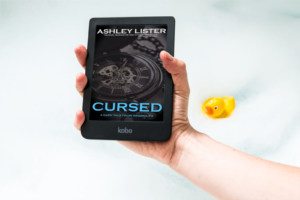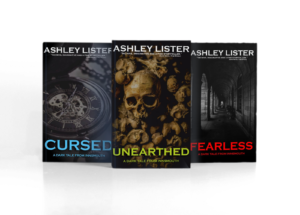by Ashley Lister
I read the following in a recent Forbes article extolling the virtues of the newsletter: “Newsletters are imperative in taking your brand marketing to the next level.”
They went on to say: “An email newsletter is basically an email used in a marketing campaign. It contains important news and updates to make your audience aware of your brand or products and other significant information. It’s a cost-effective medium used to boost business.”
Prior to my sudden conversion to marketing and self-publishing, I had no interest in newsletters and deliberately avoided creating one. My excuses were as follows –
1. Who would want to read my newsletter?
2. Wouldn’t it just piss readers off to receive a regular newsletter?
3. What would I put in a newsletter?
4. Does anyone ever get sales from a newsletter?
5. If I did decide to annoy readers with a newsletter, where the hell would I start?
I’ll go through each of these points individually, below.
1. Who would want to read my newsletter?
Newsletters are popular. If you’ve written something, whether it’s fiction, non-fiction, a blog post or something/anything else, it will have been read by someone. If that reader enjoyed what you wrote, there’s a strong chance they would welcome a newsletter from you pointing them in the direction of more of your writing.
2. Wouldn’t it just piss readers off to receive a regular newsletter?
Not really. Studies have shown that readers love it when writers reach out to them. In the simplest terms, if a reader isn’t reading your newsletter, they’re reading one from a potential competitor. Some people (and I’m one of them) do occasionally get pissed off with unwanted newsletters and they then hit the unsubscribe button. Those who haven’t unsubscribed aren’t pissed off.
3. What would I put in a newsletter?
You know your readers. Tell them about what you’re writing. Share links to stuff that you’ve published. Share parts of your life that you’re comfortable with making public. I’m fortunate in that I share a house with a photogenic dog. Is his existence relevant to my writing? No. But I’m sure there are some readers out there more interested in his development than they are in my writing and I believe they only buy the occasional book because they’re hoping the royalties I make will be spent on dog food.
Include links to your writing, links to sales areas and links to reviews. Include links to anything that you think your readers will find interesting or relevant.
4. Does anyone ever get sales from a newsletter?
Short answer: YES. I sell most of my work through Amazon and this means I can monitor sales through the app Book Report. On the two days following the sending of a newsletter I will invariably see a marked increase in sales. Because this pattern is so consistent, I can only conclude that the sales are related to the newsletter.
5. If I did decide to annoy readers with a newsletter, where the hell would I start?
I’m currently using Mailchimp for my own distribution but there are other newsletter tools out there such as Mailjet, ConvertKit, Mailerlite etc. Personally I find Mailchimp easy to use and the fact that it’s free until I reach 2,000 subscribers means that it’s currently cost efficient.
I’m building the mailing list through BookFunnel, which is allowing me to get my work seen by a substantial number of readers who wouldn’t previously have had an opportunity to see my work. Some of those might see my writing and decide they were happier before they’d read my writing. Others (the ones who will stay subscribed) enjoy what they’ve read and want to see more.
As it said in the article from Forbes: “it’s time to realize that newsletters are an important component of effective email marketing and branding. Ignoring them can restrict brands from growth.”
And, although we know that size doesn’t really matter, I’m sure we can all benefit from a little growth.



 PS BUY MY BOOK
PS BUY MY BOOK



